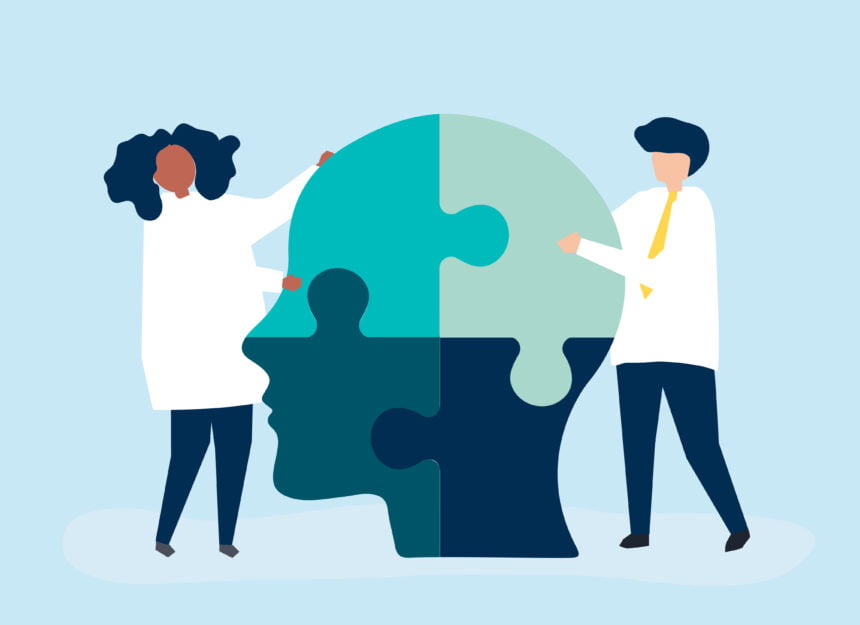Mental illness is highly prevalent and has been showing a consistent increase. People who suffer from mental illness usually present with changes in thinking, emotion, and/or behavior. Mental illnesses can lead to significant disability and difficulty in interpersonal and interprofessional relationships. Nearly one in five Americans experience some form of mental illness symptoms. Of these, almost a quarter have symptoms that require treatment. However, it is important to understand that mental illness is treatable, but many people do not seek treatment because of social taboos and misconceptions.
There are five different types of health professionals. Some provide counseling, while others can diagnose and prescribe treatment. These five types include:
- The clinical psychologist is trained in psychology and may have a doctoral degree from an accredited college/university. They are trained to diagnose mental health disorders and provide psychotherapy. They also develop a plan of action and assist clients in achieving education, personal and social development goals. A clinical psychologist works in many different settings, including private clinics, hospitals, prisons, schools, colleges, and local communities. Clinical psychologists need to complete a four-year undergraduate degree in sociology or psychology followed by a master’s degree in clinical psychology. Many clinical psychologists also pursue a Ph.D. in psychology which could take an additional 4-6 years.
- A psychiatrist specializes in the treatment of mental health. Psychiatrists have to complete four years of medical school followed by 3-4 years of residency training in psychiatry. They can diagnose different types of mental health disorders and often prescribe medications to manage a wide range of mental illnesses. Some psychiatrists also offer psychotherapeutic treatment.
- A therapist/counsellor uses psychotherapy techniques to help individuals who suffer from psychological distress. In general, mental health counselors work with individuals dealing with behavior, cognitive and emotional issues. They also work with families, individuals, local communities, and groups to deal with mental health problems and emotional well-being. Mental health counselors often specialize in specific areas such as marital difficulties, substance abuse, grief, and low self-esteem. They work in different environments like colleges, schools, workplaces, law and enforcement agencies, hospitals, universities, etc. Mental health counselors need a bachelor’s degree in sociology, psychology, or social work, followed by 1-2 years of formal training in an accredited master’s degree program. This is followed by practical counseling experience for 2-3 years under the supervision of a licensed counselor.
- A mental health nurse works with individuals, groups, families, and local communities to assess and cater to their mental health needs. A mental health nurse can diagnose and implement a care plan and determine the effectiveness of treatments. These treatments may include psychotherapy, prescription medication, or both. Mental health nurses can work in healthcare institutions, private clinics, community centers, schools, colleges, prisons, or government agencies. In some states, mental health nurses are also permitted to write prescriptions for their patients. Mental health nurses require a Registered Nurse (RN) degree and need to complete a mental health or psychology program for 1-2 years.
- A clinical social worker is trained in social work focusing on diagnosis, assessment, treatment, and prevention of mental illnesses, behavioral, and other emotional disorders. A clinical social worker may provide individual, group, or family therapy for more common mental health disorders. They can work in private practice and be affiliated with hospitals, community health services, schools, the government, or outreach programs. They are trained to treat depression, anxiety, post-traumatic disorders, anxiety, addiction, stress management, self-esteem issues, and other mental health issues. A clinical social worker must have a master’s degree in social work and academic training in mental health. Following completion, the clinical social worker must also undertake 1-2 years of supervised clinical training in either general mental health or specialize in one area. Clinical training can be completed in a hospital, mental health clinic, or in an outreach area.
Specialization
Mental health professionals can specialize in the following areas:
- Addiction to drugs, alcohol, and gambling
- Bereavement and grief
- Behavioral therapy
- Children or adolescents
- Family & marriage counseling
- Religious / pastoral counselor
- Seniors
- Trauma
- Weight loss/eating disorders
Conclusion
Irrespective of the type of mental health professional you choose to become, you will need certification and a valid state license to practice. Also, in order to maintain your license, you will need to undertake continuing education courses every year to keep up to date on clinical advancements in your particular area. This is also part of the licensing requirements for most mental health professions. The demand for mental health professionals has shown consistent growth over the last few years, and there is no shortage of jobs and opportunities in this field. However, you need to make sure you acquire the necessary education and practical experience to help your clients live a better and more fulfilling life.










